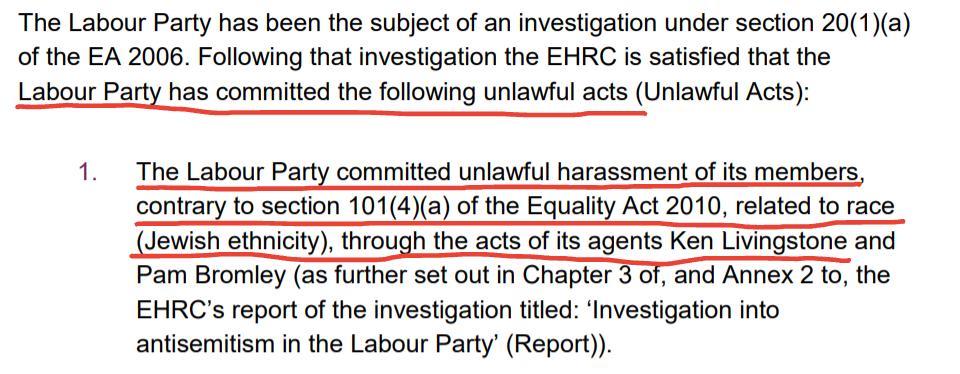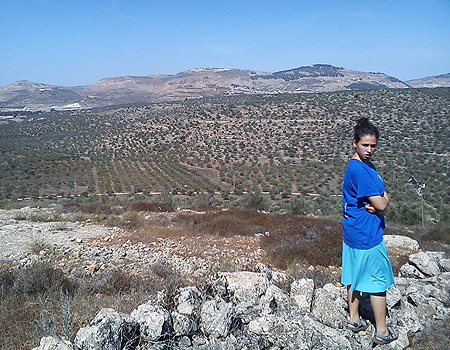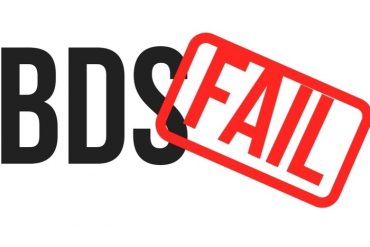An article in the Guardian on the possibility that Ken Livingstone will join the Green Party egregiously downplayed the former London Mayor’s role in the antisemitism crisis that engulfed the Labour Party under Jeremy Corbyn. The piece, by Arthur Neslen (“Former London mayor Ken Livingstone ‘will apply’ to join Greens”, Jan. 17), includes the following about Livingstone:
Ken Livingstone, the former mayor of London who was suspended from Labour over comments about Hitler supporting Zionism, has said he will apply to join the Green party.
…
But Livingstone was a polarising and controversial figure, leaving the Labour party after he was suspended in May 2016 for telling a journalist that when Hitler was first elected, “he was supporting Zionism before he went mad and ended up killing 6 million Jews”.
Livingstone said he was alluding to the contentious 1933 Haavara agreement between Nazi Germany and some Zionist groups. The Haavara deal undermined an attempted Jewish boycott of Nazi Germany, but enabled about 60,000 Jews to migrate to Palestine, if they used their assets to purchase exported German goods.
To critics, though, his words trivialised the genocide, confused its agency – which belongs solely to Hitler – unfairly linked Zionism and nazism and even offered Hitler a “diminished responsibility” defence.
This is all narrowly accurate.
However, the article is grossly misleading as it suggests that the only charge of antisemitism against Livingstone was his lie that Hitler supported Zionism. It ignores the far more relevant information contained in the 2020 report by the Equality and Human Rights Commission (EHRC) on antisemitism in the Labour Party, which found Livingstone guilty of antisemitic harassment.

Here’s the summary about Livingstone in the report:
In April 2016, while he was a member of the Labour Party’s National Executive Committee (NEC), Ken Livingstone made statements about antisemitic social media posts by Naz Shah MP, which we explain below. Naz Shah’s social media posts included an image suggesting that Israel should be relocated to the United States, with the comment ‘problem solved’, and a post in which she appeared to liken Israeli policies to those of Hitler. Naz Shah apologised for her comments in Parliament on 27 April 2016.
In media interviews between 28 and 30 April 2016, Ken Livingstone denied that these posts were antisemitic. He sought to minimise their offensive nature by stating that they were merely criticism of Israeli policy at a time of conflict with the Palestinians. He also alleged that scrutiny of Naz Shah’s conduct was part of an apparent smear campaign by ‘the Israel lobby’ to stigmatise critics of Israel as antisemitic, as well as being aimed at undermining and disrupting the leadership of Jeremy Corbyn MP.
These comments were made on radio shows with large audiences. More than 20 Labour MPs called for Ken Livingstone to be suspended for his comments in April 2016. Graham Stringer MP wrote to the Labour Party about the Jewish community he represented in North Manchester and Salford, having been ‘very concerned about Naz Shah’s postings on Facebook and Ken Livingstone’s many statements during recent interviews’.
In a letter dated 15 February 2017, the Jewish Labour Movement set out the effect of Ken Livingstone’s comments on the UK’s Jewish community. The letter stated that his comments had ‘caused immeasurable damage’, and that the effect of his remarks on the relationship between the Labour Party and the Jewish community had been ‘devastating’.
We have seen resignation letters from Labour Party members in which they cited Ken Livingstone’s comments, and the failure of the National Constitutional Committee (NCC) to expel him in April 2017, as the reason for their resignation. Labour Party members told us that Ken Livingstone’s comments caused shock and anger among Jewish Labour Party members who felt they were appalling, highly offensive, very distressing and made them feel uncomfortable and unwanted in the Labour Party.
They told us they thought Ken Livingstone’s statement, that scrutiny of Naz Shah’s conduct was part of an apparent smear campaign by ‘the Israel lobby’, was a classic antisemitic trope. They said that the Jewish community and Jewish Labour Party members were raising very clear concerns about Naz Shah’s comments. Instead of taking their concerns seriously, Ken Livingstone dismissed them as acting on behalf of a foreign power. They considered that this was clearly antisemitic.
Labour Party members said the effect of these comments was humiliating, denied the victims’ experience, diminished the issue, had the effect of stirring up and fuelling hatred for Jews and contributed to the creation of a hostile and intimidating environment for Jewish Labour Party members.
The specific smear peddled by Livingstone, which he’s employed since at least the mid-2000s, and has been termed the Livingstone Formulation by British academic David Hirsh, accuses Jews (as the EHRC details) of making accusations of antisemitism in bad faith in order to stifle criticism of Israel. As we’ve repeatedly documented, this antisemitic trope has been legitimised and promoted by both the BBC and the Guardian. In fact, the Guardian published an op-ed by Livingstone himself in 2005, when he was mayor, that included a variation of this trope.
The Guardian’s most recent use of this ad hominem attack on the Jewish community came in the form of an op-ed by Australian journalist Louise Adler, published in Oct. 2021, a year after the EHRC report, which argued:
“when Israel’s policies are criticised in the public sphere, the reflexive accusation is antisemitism“.
…
“The conflation of anti-Zionism and antisemitism is a long-term strategy and the effect on the Australian media is obvious. It is a proven way to silence critics, ensure questions remain unanswered and media coverage muted”.
Though the EHRC report’s focus was the Labour Party, at the time we at least hoped that lessons would be learned at other institutions prone to peddling such toxic calumnies about Jews. Sadly, we were wrong.
Related Posts
Guardian, on synagogue terror, quotes CAIR, Muslim Council of Britain and Bend the Arc





